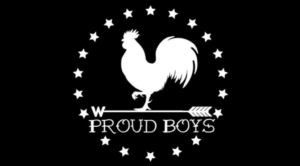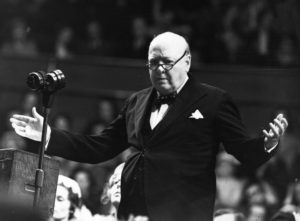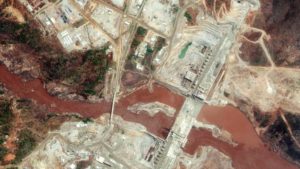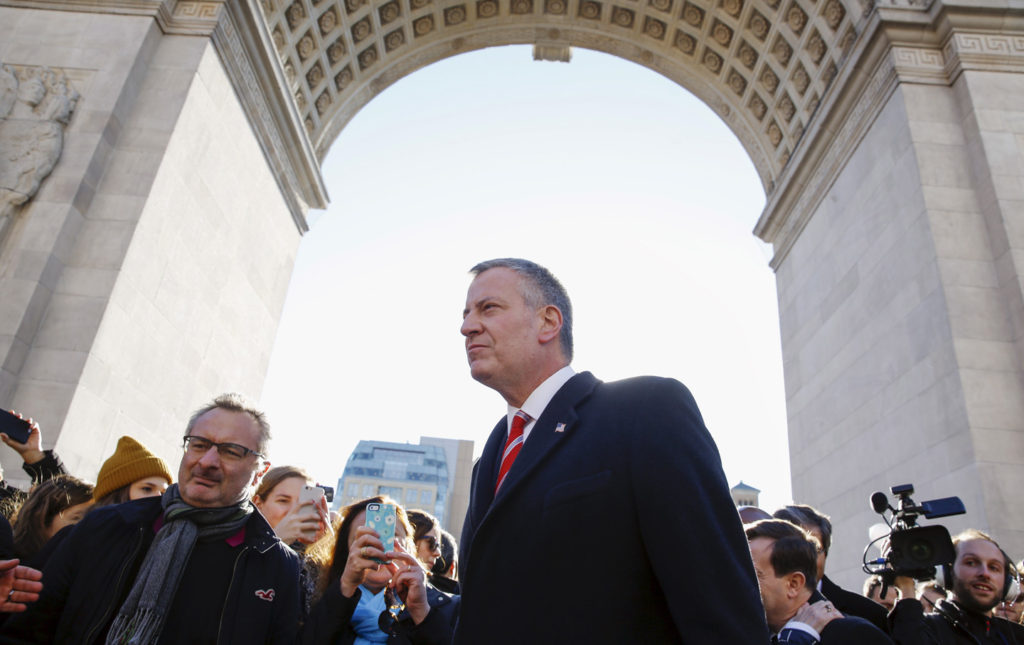
NYC Mayor Bill de Blasio (an NYU alumnus) under the Washington Square Arch, with NYU’s Kimmel Center for University Life in the background
Image courtesy of The Nation
New York City Mayor Bill de Blasio made a recent trip to Iowa, signaling that the two-term mayor is inching closer to a potential, and long-speculated presidential run in 2020. If he ends up entering the race, he will be the second New Yorker (excluding President Donald Trump) in the running, following the state’s junior U.S. Senator Kirsten Gillibrand.
However, Bill de Blasio should not run for president in 2020. He stands no conceivable chance in a presidential primary, and he never will.
Heavy Criticism and Weak Resume
Bill de Blasio has been heavily criticized for how he has run the city—from his handling of the M.T.A. to the worsening state of homelessness. De Blasio, it should be noted, does not deserve the amount of blame which he routinely receives regarding the M.T.A. The quality of the M.T.A. has been on the decline since the 1990s, well before de Blasio first assumed office in 2014. This decline was primarily a result of both the Great Recession and Superstorm Sandy in 2012. However, de Blasio so far has not been helping the situation by continuing to publicly spat with his rival, Governor Andrew Cuomo, about M.T.A. funding.
Aside from this, he has so far achieved nothing positive, of any substance, or of any significance or notoriety at all. Personally, I cannot recall any sort of achievement that has occurred under his mayorship. He seems to have spent most of his mayorship childishly quarreling with Cuomo and attempting to heighten his national profile while neglecting responsibilities at home. His resume simply cannot hold up to those of other contenders in the Democratic primaries (even those who are weak in the polls). Voters nowadays are increasingly comfortable with placing their faith in candidates with little-to-nothing on their political resumes, however, don’t think that voters will vote for just about anybody with name recognition—candidates still need to be successful in whichever field or industry they are in and have achievements to tout. De Blasio has none.
New Yorkers Dislike Him
Another major challenge to a potential Bill de Blasio presidential campaign will be the lack of enthusiasm for him among New Yorkers, even among Democratic voters.
Even though his reelection win in 2017 was without a doubt a cakewalk (66.5 percent—760,112 votes), only 8.5 percent of all New York City voters actually voted for him in that year’s mayoral election. Yes, you read that correctly: Only 8.5 percent! That is not even close to some semblance of a popular mandate. Thousands of people protested outside Trump Tower chanting “Not our president” in the days immediately following Election Day in 2016 in response to then-President-elect Donald Trump winning despite Secretary Hillary Clinton receiving nearly 3 million more popular votes than him. When de Blasio won with a smaller slice of the electorate: No protests. There is no need to explain how that is problematic—not just for de Blasio, but also for the state of the American electoral and political system. Further demonstrating his unpopularity among New Yorkers is when the crowd at the annual Rockefeller Center Christmas tree lighting booed the mayor simply at the mere mention of his name as he was introduced to ceremonially press the button to light the tree.
What are the ramifications of this unpopularity? The biggest ramification, unquestionably, is that any potential campaign donors would be turned off. If they see that the mayor can barely get his own city to vote for him, they would understandably be convinced that he cannot win, thus causing them to invest in a candidate with higher chances at winning.
History Is Against Him
Lastly, the winds of history are not favorable to Bill de Blasio. Historically and statistically, mayors do not perform well in presidential elections, according to POLITICO. Los Angeles Mayor Eric Garcetti, formerly considered a potential presidential candidate, realized this and decided early on to rule out a 2020 campaign. The only former mayors to have become president were Presidents Grover Cleveland (1885-89, 1893-97) and Calvin Coolidge (1923-29), but they both held other offices higher than mayor before running for president.
Keeping the successful strategies of Cleveland and Coolidge in mind, if de Blasio wants to ultimately stand some form of a chance in a future presidential primary, he’ll need to ascend to higher elected office. Feasibly, he would have the chance to run for Governor in 2022, or for the U.S. Senate in 2022 or 2024. If Kirsten Gillibrand becomes President in 2020 or receives a cabinet position, he would have the chance to also run in the subsequent special election for her seat. In these elections he may actually have a good chance of winning, since he is debatably the politician with the second-most name recognition across New York state, behind Governor Cuomo, and among Downstaters de Blasio’s name recognition might unsurprisingly be tied or even higher than the Governor’s.
If there is any chance of Bill de Blasio creating some size of a dent on the national political scene in 2020 or in the future, ascending to higher elected office, adding more achievements to his resume, and befriending Governor Cuomo are the only means of clearing way for such a path. Nonetheless, such a chance is unlikely in 2020, and will never become likely in the future. At the point, he should just consider his losses.
Douglas Braff
Check out Douglas Braff’s previous article on New York politics about the potential effects of the 2018 Midterm Election results on New York State.
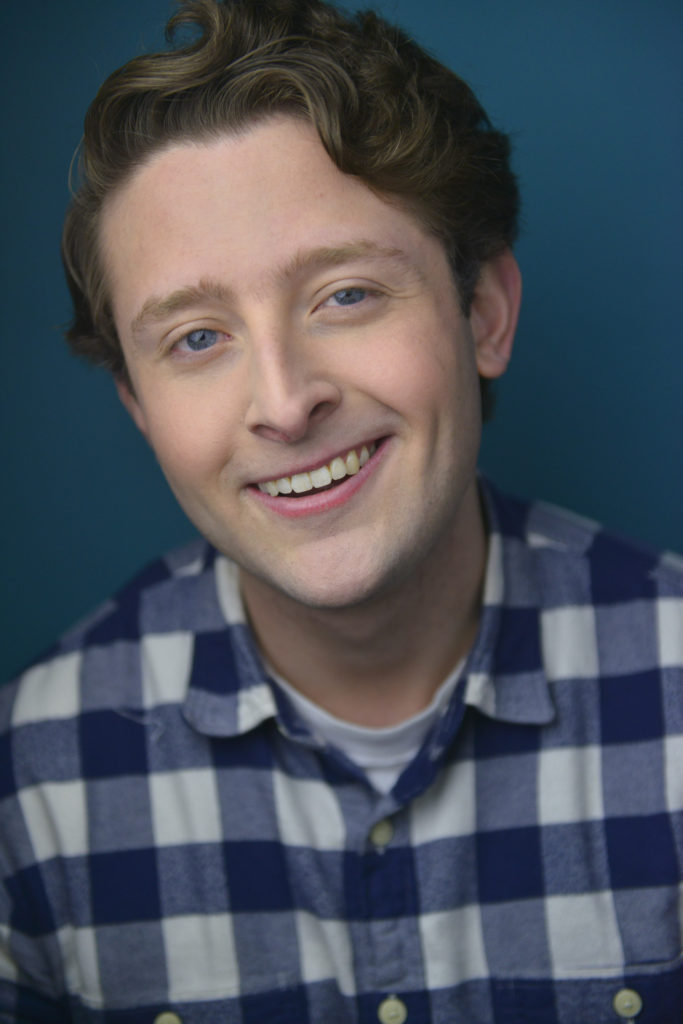
Douglas Braff, a copy editor

